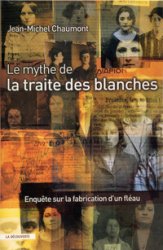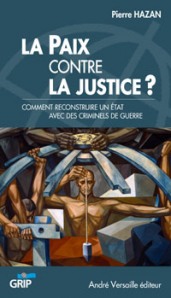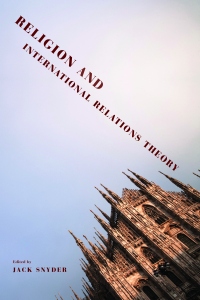La responsabilité des experts : la convention internationale de 1949 sur la répression de la traite des êtres humains et l’exploitation de la prostitution
Jean-Michel Chaumont (UCL)
A propos de son ouvrage : Le mythe de la traite des blanches, La Découverte, 2009
Le Rapport du Comité spécial d’Experts sur la question de la traite des femmes et des enfants publié en deux parties (1927) par la Société des Nations offre l’exemple d’une mystification historique pleinement réussie. Aujourd’hui comme hier, il est donné comme un rapport scientifique sans équivalent (parce que rédigé au terme d’une enquête menée sur le terrain, grâce à des enquêteurs infiltrés notamment, dans 28 pays d’Europe et d’Amérique pendant deux ans) et dont les conséquences objectives furent majeures : il est censé d’une part avoir établi définitivement l’existence même de la traite des femmes, d’autre part le rôle causal majeur de la réglementation de la prostitution dans ce phénomène criminel et esclavagiste. A ce double titre, il fut une condition nécessaire de la Convention Onusienne de 1949 sur la répression de la traite des êtres humains et de l’exploitation de la prostitution. L’examen des archives, tant des 7 sessions du Comité d’Experts que de l’enquête proprement dite, révèle que les experts ont manipulé leurs données afin, surtout, de réaliser leurs objectifs idéologiques de lutte contre la prostitution.
A partir de ce constat, de nombreuses questions se posent relatives à l’expertise, à l’histoire de la protection internationale des droits humains et à la détermination des « formes modernes d’esclavage ».
Discutant : Emmanuel Decaux (Paris II)
CERI : 11.00 – 13.00 (salle du conseil)


